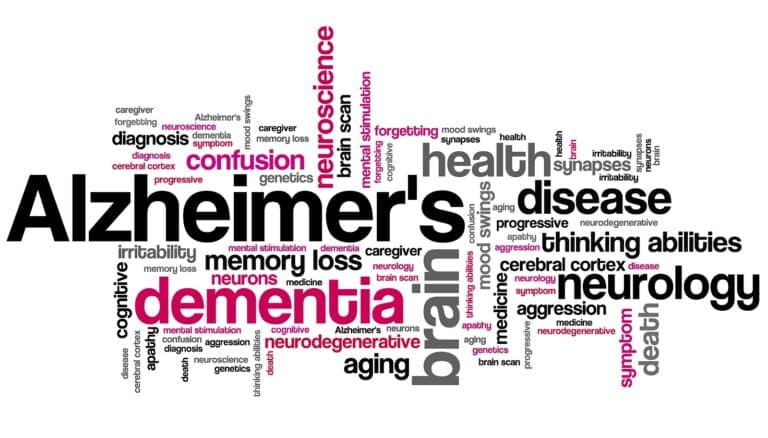Alzheimer’s disease affects more and more people every year. It’s a progressive brain illness that is challenging for seniors and their families to manage. Understanding as much as possible about Alzheimer’s disease allows families to make the best decisions they can while managing everything related to the condition. Alzheimer’s home care is a crucial part of any plan that families put together because it can help families to keep learning and planning for the future.
People Can Slow Down Alzheimer’s Progression
Nothing can cure Alzheimer’s disease yet, but there are lifestyle modifications and other tools that might be able to slow down the progression. Adopting a brain-healthy lifestyle that includes regular physical exercise, a balanced diet, mental stimulation, and social engagement can be beneficial. Staying physically active helps to enhance blood flow to the brain and promotes the growth of new nerve connections. Furthermore, engaging in mentally stimulating activities, such as puzzles or learning new skills, can help preserve cognitive function.
Signs of Alzheimer’s Disease Can Be Present for a Long Time
Alzheimer’s disease has a slow and gradual onset, but the signs can be present long before the condition is clinically diagnosed. Mild memory lapses or occasional confusion may initially be dismissed as typical age-related changes. Early detection is crucial for better disease management and treatment planning. It is essential to recognize the warning signs, such as increasing forgetfulness, difficulty completing familiar tasks, confusion about time or place, and challenges with communication or problem-solving, and seek medical attention if necessary.
Depression Can Be a Factor
Depression and Alzheimer’s disease often coexist, and one can exacerbate the other. Depression may be an early sign of Alzheimer’s, or it can occur as a reaction to the diagnosis and the challenges of living with the condition. It is crucial to address and manage depression in individuals with Alzheimer’s disease to improve their overall quality of life and enhance their ability to cope with the disease. Mental health support, therapy, and, in some cases, medication can be valuable components of a comprehensive treatment plan.
Lack of Sleep Can Also Be a Factor
Sleep disturbances are common in people who have Alzheimer’s disease, and those sleep issues can significantly impact cognitive function and overall well-being. Disrupted sleep patterns, insomnia, or excessive daytime sleepiness may occur more often as the disease progresses. Addressing sleep issues through good sleep hygiene practices, creating a relaxing bedtime routine, and seeking medical advice can help to improve sleep quality and mitigate the negative effects of sleep deprivation on cognitive health.
Alzheimer’s Disease Is Diagnosed through a Variety of Ways
Diagnosing Alzheimer’s disease involves a comprehensive assessment of a person’s medical history, cognitive function, and neurological examination. The process often includes brain imaging techniques such as an MRI or PET scan to detect changes in the brain that are characteristic of Alzheimer’s disease. Additionally, neuropsychological testing helps to evaluate memory, language, and problem-solving abilities. Early and accurate diagnosis allows for appropriate Alzheimer’s care planning and access to available treatments or clinical trials.
Alzheimer’s Home Care Makes Living with Alzheimer’s Disease Easier
Caring for someone with Alzheimer’s disease can be emotionally and physically demanding for family members. Providing care at home or in a supportive environment requires a lot of understanding and patience. Creating a structured routine, offering clear communication, and engaging in meaningful activities can make daily life more manageable for both the family caregiver and the person with Alzheimer’s disease.
Alzheimer’s disease is a complex condition that requires a multifaceted approach to management and care. While there is no cure, individuals can take proactive steps to slow down its progression through lifestyle changes. Learning as much as possible about Alzheimer’s disease and working with Alzheimer’s home care experts can make the experience easier to manage.
If you or an aging loved one are considering Alzheimer’s home care in Possum Kingdom, TX, please contact the caring staff at Clear Path Home Care today. Call 325-430-0151.
Clear Path Home Care provides compassionate, high quality home care in McCulloch County, San Saba County, Mills County, Hamilton County, Runnels County, Coleman County, Brown County, Comanche County, Eastland County, Callahan County, Palo Pinto County, Stephens County, Shackleford County, Jack County, Young County, Throckmorton County, Concho County, Archer County, Clay County, Wilbarger County, and Wichita County in Texas.
- 5 Things Seniors Can Do To Avoid Rashes - May 14, 2024
- Here’s Why Seniors Should Be Practicing Gratitude - May 2, 2024
- When Does Your Senior Mom Need Companion Care? - April 18, 2024






